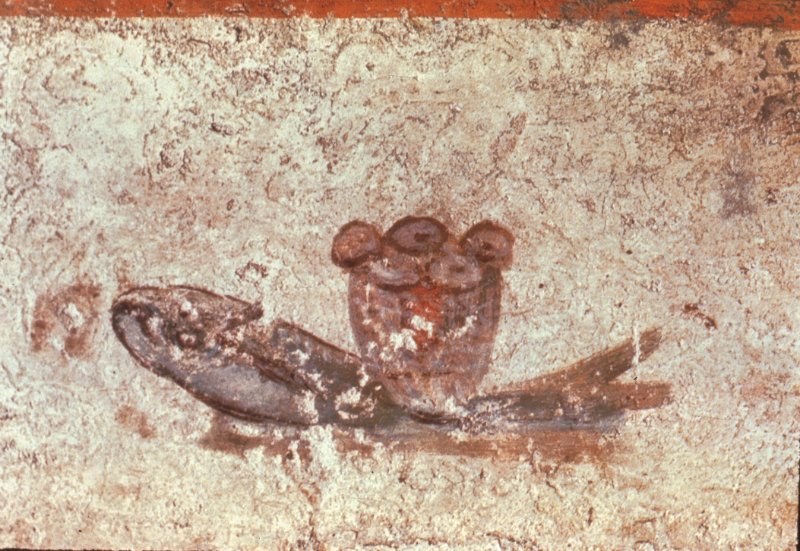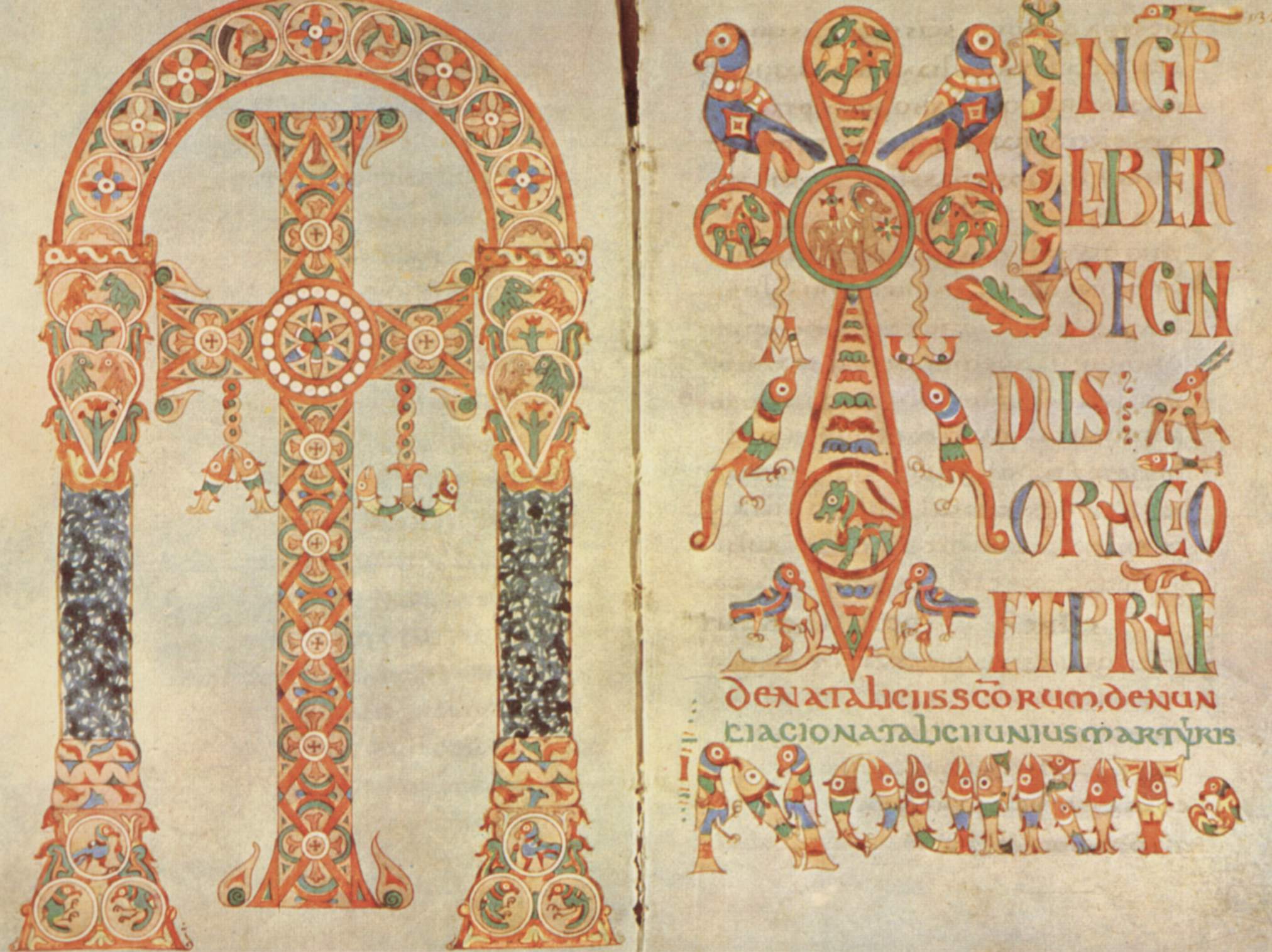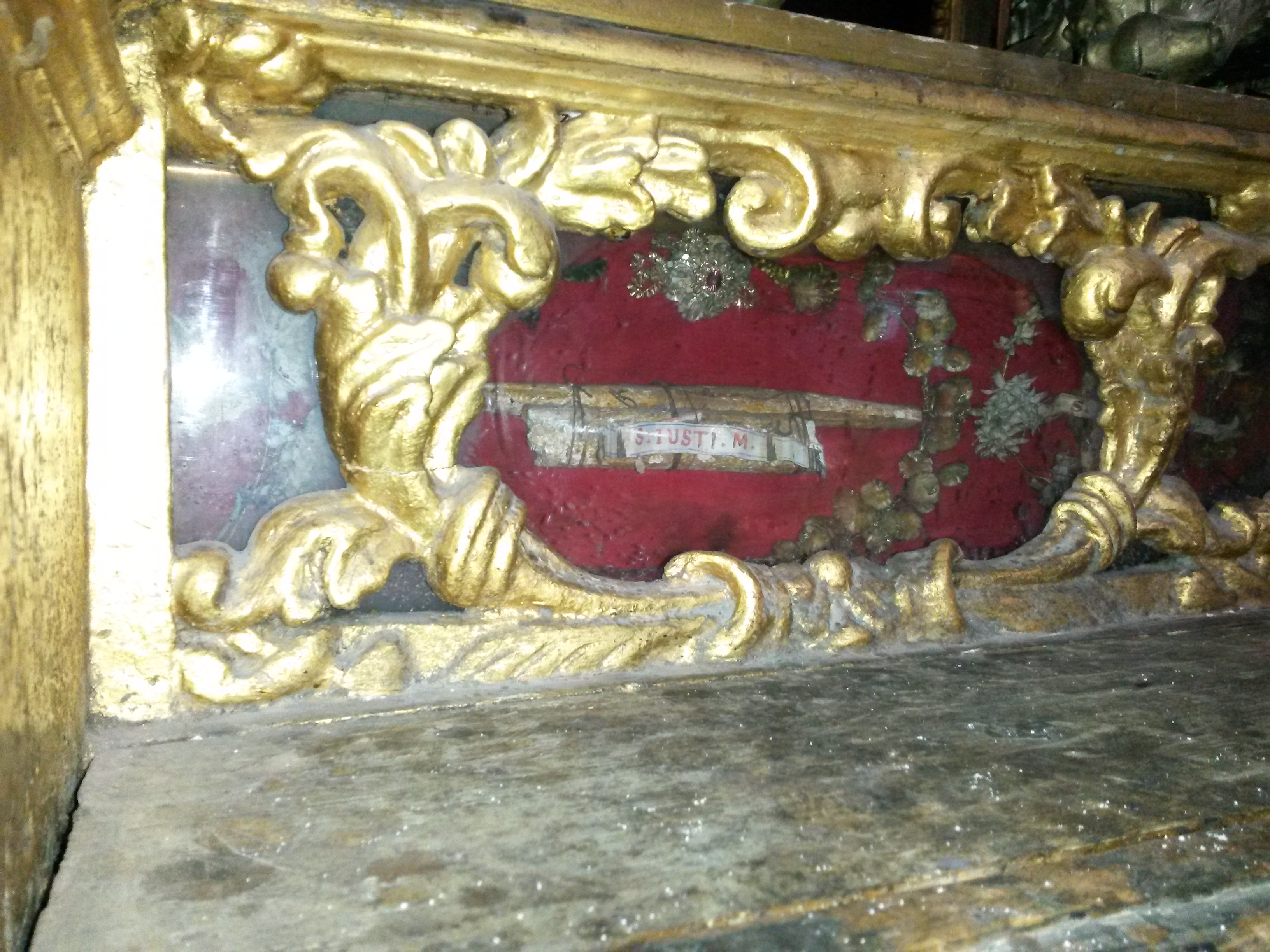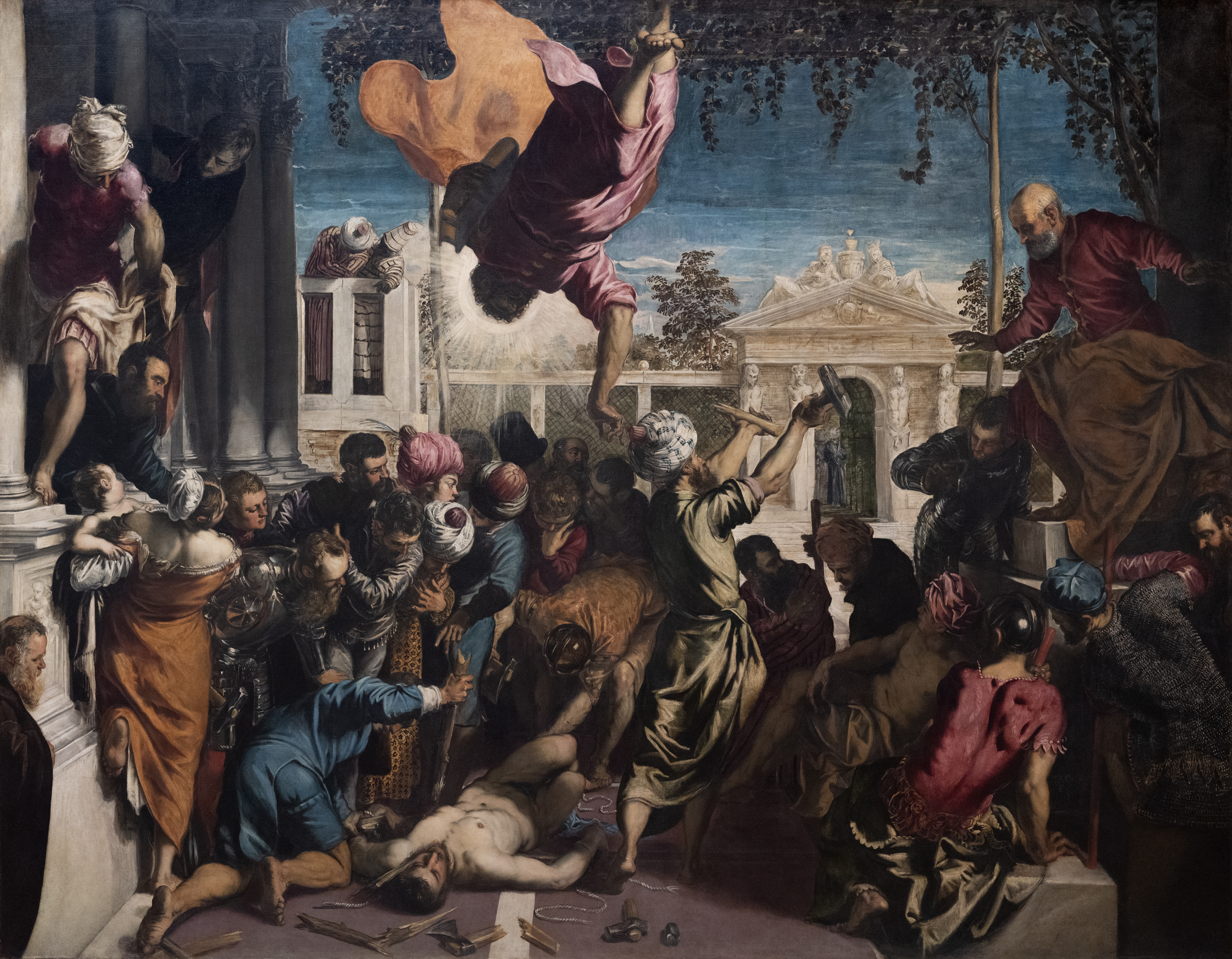|
Bread Of Life
The Bread of Life Discourse is a portion of the teaching of Jesus which appears in chapter 6 of John's Gospel ( verses 22–59) and was delivered in the synagogue at Capernaum. The title "Bread of Life" (, ''artos tēs zōēs'') given to Jesus is based on this biblical passage which is set in the gospel shortly after the feeding the multitude episode (in which Jesus feeds a crowd of 5,000 people with five loaves of bread and two fish), after which he walks on the water to the western side of Sea of Galilee and the crowd follow by boat in search of him. John's Gospel does not include an account of the blessing of the bread during the Last Supper as in the synoptic gospels e.g. . Nonetheless, this discourse has often been interpreted as communicating teachings regarding the Eucharist which have been very influential in the Christian tradition. Biblical account In the central part of this discourse: The reference to the bread given by Moses concerns the manna given to the pe ... [...More Info...] [...Related Items...] OR: [Wikipedia] [Google] [Baidu] |
Eucharistic Bread And Fish
The Eucharist ( ; from , ), also called Holy Communion, the Blessed Sacrament or the Lord's Supper, is a Christian rite, considered a sacrament in most churches and an ordinance in others. Christians believe that the rite was instituted by Jesus at the Last Supper, the night before his crucifixion, giving his disciples bread and wine. Passages in the New Testament state that he commanded them to "do this in memory of me" while referring to the bread as "my body" and the cup of wine as "the blood of my covenant, which is poured out for many". According to the synoptic Gospels, this was at a Passover meal. The elements of the Eucharist, sacramental bread, either leavened or unleavened, and sacramental wine (non-alcoholic grape juice in some Protestant traditions, such as Methodism), are consecrated on an altar or a communion table and consumed thereafter. The consecrated elements are the end product of the Eucharistic Prayer. Christians generally recognize a special presence ... [...More Info...] [...Related Items...] OR: [Wikipedia] [Google] [Baidu] |
Israelites
Israelites were a Hebrew language, Hebrew-speaking ethnoreligious group, consisting of tribes that lived in Canaan during the Iron Age. Modern scholarship describes the Israelites as emerging from indigenous Canaanites, Canaanite populations and other peoples.Mark Smith in "The Early History of God: Yahweh and Other Deities of Ancient Israel" states "Despite the long regnant model that the Canaanites and Israelites were people of fundamentally different culture, archaeological data now casts doubt on this view. The material culture of the region exhibits numerous common points between Israelites and Canaanites in the Iron I period (c. 1200–1000 BCE). The record would suggest that the Israelite culture largely overlapped with and derived from Canaanite culture ... In short, Israelite culture was largely Canaanite in nature. Given the information available, one cannot maintain a radical cultural separation between Canaanites and Israelites for the Iron I period." (pp. ... [...More Info...] [...Related Items...] OR: [Wikipedia] [Google] [Baidu] |
Cyril Of Jerusalem
Cyril of Jerusalem (, ''Kýrillos A Ierosolýmon''; ; 386) was a theologian of the Early Church. About the end of AD 350, he succeeded Maximus as Bishop of Jerusalem, but was exiled on more than one occasion due to the enmity of Acacius of Caesarea, and the policies of various emperors. Cyril left important writings documenting the instruction of catechumens and the order of the Liturgy in his day. Cyril is venerated as a saint within the Roman Catholic Church, the Eastern Orthodox Church, Oriental Orthodox Church, and the Anglican Communion. In 1883, Cyril was declared a Doctor of the Church by Pope Leo XIII. The Roman Catholic Church maintains an Optional Memorial for Cyril on 18 March. Cyril is remembered in the Church of England with a commemoration on 18 March. He should not be confused with Cyril of Alexandria. Life and character Little is known of his life before he became a bishop; the assignment of his birth to the year 315 rests on conjecture. According to ... [...More Info...] [...Related Items...] OR: [Wikipedia] [Google] [Baidu] |
Irenaeus
Irenaeus ( or ; ; ) was a Greeks, Greek bishop noted for his role in guiding and expanding Christianity, Christian communities in the southern regions of present-day France and, more widely, for the development of Christian theology by opposing Gnostic interpretations of Christian Scripture and defining proto-orthodoxy. Originating from Smyrna, he had seen and heard the preaching of Polycarp, who in turn was said to have heard John the Evangelist. Chosen as Roman Catholic Archdiocese of Lyon, Bishop of Lugdunum, now Lyon, Irenaeus wrote his best-known work ''Against Heresies (Irenaeus), Against Heresies'' around 180 as a refutation of gnosticism, in particular that of Valentinus (Gnostic), Valentinus. To counter the doctrines of the gnostic sects claiming Sophia (gnosticism), secret wisdom, he offered three pillars of orthodoxy: the Bible, scriptures, the Apostolic Tradition, tradition said to be handed down from the apostles, and the teaching of the apostles' Apostolic succ ... [...More Info...] [...Related Items...] OR: [Wikipedia] [Google] [Baidu] |
Patriarch Of Antioch
The Patriarch of Antioch is a traditional title held by the bishop of Antioch (modern-day Antakya, Turkey). As the traditional "overseer" (, , from which the word ''bishop'' is derived) of the first gentile Christian community, the position has been of prime importance in Pauline Christianity from its earliest period. This diocese is one of the few for which the names of its bishops from the apostolic beginnings have been preserved. Today five churches use the title of patriarch of Antioch: one Eastern Orthodox (the Greek Orthodox Church of Antioch); one Oriental Orthodox (the Syriac Orthodox Church); and three Eastern Catholic (the Maronite, Syriac Catholic, and Melkite Greek Catholic Churches). According to the pre-congregation church tradition, this ancient patriarchate was founded by the Apostle Saint Peter. The patriarchal succession was disputed at the time of the Meletian schism in 362 and again after the Council of Chalcedon in 451, when there were rival Me ... [...More Info...] [...Related Items...] OR: [Wikipedia] [Google] [Baidu] |
John The Apostle
John the Apostle (; ; ), also known as Saint John the Beloved and, in Eastern Orthodox Christianity, Saint John the Theologian, was one of the Twelve Apostles of Jesus according to the New Testament. Generally listed as the youngest apostle, he was the son of Zebedee and Salome (disciple), Salome. His brother James the Great, James was another of the Twelve Apostles. The Church Fathers identify him as John the Evangelist, John of Patmos, John the Presbyter, John the Elder, and the Disciple whom Jesus loved, Beloved Disciple, and claim that he outlived the remaining apostles and was the only one to die of natural causes, although modern scholars are divided on the veracity of these claims. John the Apostle is traditionally held to be the author of the Gospel of John, and many Christian denominations believe that he authored several other books of the New Testament (the three Johannine epistles and the Book of Revelation, together with the Gospel of John, are called the Johannine ... [...More Info...] [...Related Items...] OR: [Wikipedia] [Google] [Baidu] |
Ignatius Of Antioch
Ignatius of Antioch (; ; died 108/140), also known as Ignatius Theophorus (), was an early Christian writer and Patriarch of Antioch. While en route to Rome, where he met his Christian martyrs, martyrdom, Ignatius wrote a series of letters. This correspondence forms a central part of a later collection of works by the Apostolic Fathers. He is considered one of the three most important of these, together with Clement of Rome and Polycarp. His letters also serve as an example of early Christian theology, and address important topics including ecclesiology, the sacraments, and the role of bishops. Life Nothing is known of Ignatius' life apart from the words of his letters and later traditions. It is said Ignatius conversion (religious), converted to Christianity at a young age. Tradition identifies him and his friend Polycarp as disciples of John the Apostle. Later, Ignatius was chosen to serve as Bishop of Antioch; the fourth-century Church historian Eusebius writes that Ignatius ... [...More Info...] [...Related Items...] OR: [Wikipedia] [Google] [Baidu] |
Eucharistic Prayer
The Anaphora (), Eucharistic Prayer, or Great Thanksgiving, is a portion of the Christian liturgy of the Eucharist in which, through a prayer of thanksgiving, the elements of bread and wine are consecrated. The prevalent historical Roman Rite form is called the " Canon of the Mass". "Anaphora" is a Greek word () meaning a "carrying up", thus an "offering" (hence its use in reference to the offering of sacrifice to God). (This sense is distinct from the usage of "anaphora" in rhetoric and linguistics to mean a "carrying back".) In the sacrificial language of the Greek version of the Hebrew Bible known as the Septuagint, (prospherein) is used of the offerer's bringing the victim ''to'' the altar, and (anapherein) is used of the priest's offering ''up'' the selected portion upon the altar (see, for instance, , , , ). Elements To describe the structure of the Anaphoras as it became standardized from the 4th century, we can look at the structure of the anaphoras in the Antiochene ... [...More Info...] [...Related Items...] OR: [Wikipedia] [Google] [Baidu] |
Antoninus Pius
Titus Aelius Hadrianus Antoninus Pius (; ; 19 September 86 – 7 March 161) was Roman emperor from AD 138 to 161. He was the fourth of the Five Good Emperors from the Nerva–Antonine dynasty. Born into a senatorial family, Antoninus held various offices during the reign of Emperor Hadrian. He married Hadrian's niece Faustina the Elder, Faustina, and Hadrian adopted him as his son and successor shortly before his death. Antoninus acquired the cognomen Pius after his accession to the throne, either because he compelled the Roman Senate, Senate to Roman imperial cult, deify his adoptive father, or because he had saved senators sentenced to death by Hadrian in his later years. His reign is notable for the peaceful state of the Empire, with no major revolts or military incursions during this time. A successful military campaign in Geography of Scotland, southern Scotland early in his reign resulted in the construction of the Antonine Wall. Antoninus was an effective administrator, ... [...More Info...] [...Related Items...] OR: [Wikipedia] [Google] [Baidu] |
Justin Martyr
Justin, known posthumously as Justin Martyr (; ), also known as Justin the Philosopher, was an early Christian apologist and Philosophy, philosopher. Most of his works are lost, but two apologies and a dialogue did survive. The ''First Apology of Justin Martyr, First Apology'', his most well-known text, passionately defends the morality of the Christian life, and provides various ethical and philosophical arguments to convince the Roman emperor Antoninus Pius to abandon the persecution of the Church. Further, he also indicates, as Augustine of Hippo, St. Augustine would later, regarding the "true religion" that revealed itself as Christianity, that the "seeds of Christianity" (manifestations of the Logos (Christianity), Logos acting in history) actually predated Christ's Incarnation (Christianity), incarnation. This notion allows him to claim many historical Greek philosophers (including Socrates and Plato), in whose works he was well studied, as Virtuous pagan, unknowing Chris ... [...More Info...] [...Related Items...] OR: [Wikipedia] [Google] [Baidu] |
Persecution Of Christians
The persecution of Christians can be historically traced from the first century of the Christian era to the present day. Christian missionaries and converts to Christianity have both been targeted for persecution, sometimes to the point of being martyred for their faith, ever since the emergence of Christianity. Early Christians were persecuted at the hands of both Jews, from whose religion Christianity arose, and the Romans who controlled many of the early centers of Christianity in the Roman Empire. Since the emergence of Christian states in Late Antiquity, Christians have also been persecuted by other Christians due to differences in doctrine which have been declared heretical. Early in the fourth century, the empire's official persecutions were ended by the Edict of Serdica in 311 and the practice of Christianity legalized by the Edict of Milan in 312. By the year 380, Christians had begun to persecute each other. The schisms of late antiquity and the Middle Ag ... [...More Info...] [...Related Items...] OR: [Wikipedia] [Google] [Baidu] |
Miracle
A miracle is an event that is inexplicable by natural or scientific lawsOne dictionary define"Miracle"as: "A surprising and welcome event that is not explicable by natural or scientific laws and is therefore considered to be the work of a divine agency." and accordingly gets attributed to some supernatural or praeternatural cause. Various religions often attribute a phenomenon characterized as miraculous to the actions of a supernatural being, (especially) a deity, a miracle worker, a saint, or a religious leader. Informally, English-speakers often use the word ''miracle'' to characterise any beneficial event that is statistically unlikely but not contrary to the laws of nature, such as surviving a natural disaster, or simply a "wonderful" occurrence, regardless of likelihood (e.g. "the miracle of childbirth"). Some coincidences may be seen as miracles. A true miracle would, by definition, be a non-natural phenomenon, leading many writers to dismiss miracles as physically i ... [...More Info...] [...Related Items...] OR: [Wikipedia] [Google] [Baidu] |










